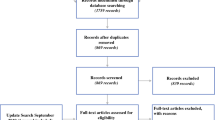Abstract
Background
Data on quality of life (QOL) after cytoreductive surgery with hyperthermic intraperitoneal chemotherapy (CRS + HIPEC) is scarce in the Asian population. This study assesses QOL outcomes after CRS and HIPEC in an Asian cancer center.
Methods
Patients who completed CRS + HIPEC 6–18 months ago (27 patients) were enrolled in the study. QOL was measured via the European Organization for Research and Treatment of Cancer QLQ-C30 questionnaires. The scores were compared with a group of 393 disease-free cancer patients, not on active treatment, who had ECOG scores of either 0 or 1. The 1-sample t test was used to compare differences in QOL scores between the 2 groups.
Results
A total of 27 patients were analyzed, of which 22 (81 %) were females. Median age was 51 years (15–59 years). CRS + HIPEC were performed for ovarian cancer in 15 patients (55 %), appendiceal carcinoma in 5 patients (19 %), and colorectal carcinoma in 4 patients (15 %). The median intraoperative peritoneal carcinomatosis index (PCI) score was 15 (2–31) while the completeness of CC score was 0 and 1 in 25 and 2 patients, respectively. The median duration after CRS + HIPEC was 10 months (6–16 months). Global health status and functional and symptom scores were largely similar between patients after CRS + HIPEC and the control group. Cognitive functioning scores and fatigue scores were significantly better in the group after CRS + HIPEC (p = 0.014 and 0.04).
Conclusions
QOL after CRS and HIPEC can be equivalent to that of well-functioning, disease-free cancer patients.
Similar content being viewed by others
References
Stewart JH 4th, Shen P, Levine EA. Intraperitoneal hyperthermic chemotherapy for peritoneal surface malignancy: current status and future directions. Ann Surg Oncol. 2005;12:765–77.
McQuellon RP, Russell GB, Shen P, et al. Survival and health outcomes after cytoreductive surgery with intraperitoneal hyperthermic chemotherapy for disseminated peritoneal cancer of appendiceal origin. Ann Surg Oncol. 2008;15:125–33.
Verwaal VJ, Bruin S, Boot H, et al. 8-year follow-up of randomized trial: cytoreduction and hyperthermic intraperitoneal chemotherapy versus systemic chemotherapy in patients with peritoneal carcinomatosis of colorectal cancer. Ann Surg Oncol. 2008;15:2426–32.
Verwaal VJ, van Ruth S, de Bree E, et al. Randomized trial of cytoreduction and hyperthermic intraperitoneal chemotherapy versus systemic chemotherapy and palliative surgery in patients with peritoneal carcinomatosis of colorectal cancer. J Clin Oncol. 2003;21:3737–43.
Di Giorgio A, Naticchioni E, Biacchi D, et al. Cytoreductive surgery (peritonectomy procedures) combined with hyperthermic intraperitoneal chemotherapy (HIPEC) in the treatment of diffuse peritoneal carcinomatosis from ovarian cancer. Cancer. 2008;113:315–25.
Yan TD, Welch L, Black D, Sugarbaker PH. A systematic review on the efficacy of cytoreductive surgery combined with perioperative intraperitoneal chemotherapy for diffuse malignancy peritoneal mesothelioma. Ann Oncol. 2007;18:827–34.
Piso P, Glockzin G, von Breitenbuch P, et al. Quality of life after cytoreductive surgery and hyperthermic intraperitoneal chemotherapy for peritoneal surface malignancies. J Surg Oncol. 2009;100:317–20.
Poulin J, Deng R, Ingersoll TS, et al. Perceived family and friend support and the psychological well-being of American and Chinese elderly persons. J Cross Cult Gerontol. 2012;27:305–17.
Hill AR, McQuellon RP, Russell GB, et al. Survival and quality of life following cytoreductive surgery plus hyperthermic intraperitoneal chemotherapy for peritoneal carcinomatosis of colonic origin. Ann Surg Oncol. 2011;18:3673–9.
Sugarbaker PH. Peritonectomy procedures. Ann Surg. 1995;221:29–42.
Cancer Therapy Evaluation Program, Common Terminology Criteria for Adverse Events, Version 3.0, DCTD, NCI, NIH, DHHS, March 31, 2003.
Aaronson NK, Ahmedzai S, Bergman B, et al. The European Organization for Research and Treatment of Cancer QLQ-C30: a quality-of-life instrument for use in international clinical trials in oncology. J Natl Cancer Inst. 1993;85:365–76.
Cheung YB, Thumboo J, Goh C, et al. The equivalence and difference between the English and Chinese versions of two major, cancer-specific, health-related quality-of-life questionnaires. Cancer. 2004;101:2874–80.
Fayers PM, Aaronson NK, Bjordal K, Curran D, Groenvold M. The EORTC QLQ-C30 Scoring Manual. 2nd ed. Brussels: European Organization for Research and Treatment of Cancer; 1999.
Glockzin G, Schlitt HJ, Piso P. Peritoneal carcinomatosis: patients selection, perioperative complications and quality of life related to cytoreductive surgery and hyperthermic intraperitoneal chemotherapy. World J Surg Oncol. 2009;7:5.
Osoba D, Rodrigues G, Myles J, et al. Interpreting the significance of changes in health-related quality-of-life scores. J Clin Oncol. 1998;16:139–44.
Tedeschi RG, Calhoun LG. The posttraumatic growth inventory: measuring the positive legacy of trauma. J Trauma Stress. 1996;9:455–71.
Schmidt U, Dahlke MH, Klempnauer J, et al. Perioperative morbidity and quality of life in long-term survivors following cytoreductive surgery and hyperthermic intraperitoneal chemotherapy. Eur J Surg Oncol. 2005;31:53–8.
Alves S, Mohamed F, Yadegarfar G, et al. Prospective longitudinal study of quality of life following cytoreductive surgery and intraperitoneal chemotherapy for pseudomyxoma peritonei. Eur J Surg Oncol. 2010;36:1156–61.
Acknowledgments
We would like to thank Professor Cheung Yin Bunn (Centre for Quantitative Medicine, Duke NUS, Singapore) for sharing his data and his experience in Quality of Life studies.
Disclosure
There are no conflict of interest.
Author information
Authors and Affiliations
Corresponding author
Rights and permissions
About this article
Cite this article
Tan, W.J., Wong, J.F.S., Chia, C.S. et al. Quality of Life After Cytoreductive Surgery and Hyperthermic Intraperitoneal Chemotherapy: An Asian Perspective. Ann Surg Oncol 20, 4219–4223 (2013). https://doi.org/10.1245/s10434-013-3133-0
Received:
Published:
Issue Date:
DOI: https://doi.org/10.1245/s10434-013-3133-0




